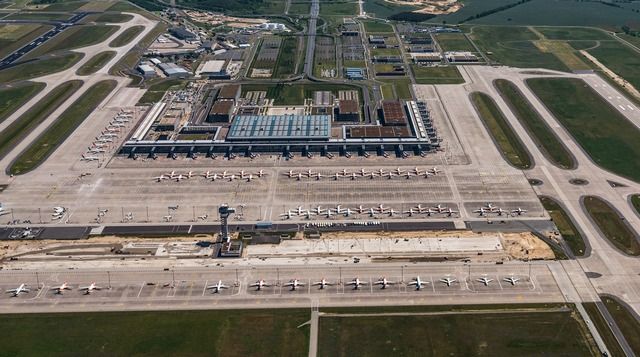Called SAMPLE, the project is being carried out as part of a competition organized by the National Center for Research and Development (NCBR) and is part-financed by the European Union. The project seeks to develop a system for the automatic monitoring of aviation obstacles.

SAMPLE aspires to deliver solutions that are innovative on an international scale:
- Continuous monitoring of aircraft flight, including landing approaches and deviations from the permitted approach path;
- Creating a complete and reliable eTOD database;
- Providing data and supervising automatic and autonomous UAV flights.
The project’s primary purpose is to develop a comprehensive SAMPLE system enabling the detection and monitoring of aviation obstacles (in compliance with ICAO standards) with risk analysis visualization, reporting, and automatic notification capabilities. The system’s main advantage will be its’ ability to automatically generate data on aviation obstacles and terrain based on satellite imagery (Earth Observation) and supplementary data.
SAMPLE will be dedicated to aviation, UAV (unmanned aerial vehicle) flights, helicopter operations in the territory of the Republic of Poland (e.g. HEMS) and other applications. The envisaged solution will use high-resolution satellite data to detect terrain objects using photogrammetric methods. It also assumes leveraging other sources of information to create detailed and up-to-date databases of aviation obstacles within selected areas.
The project deliverables will be used by entities responsible for air traffic safety and will ensure compliance with formal requirements related to monitoring obstacles in specific areas of airports and landing sites.
The project is part-financed by the European Union in the amount of PLN 12,724,798.38. The funding comes from the European Regional Development Fund of the Smart Growth Development Operational Programme, sub-measure 1.1.1 “Industrial research and development work carried out by enterprises”. The project’s total budget stands at PLN 17,515,932.69.
The project is carried out as part of Fast Track 3_2020, a competition run by the National Center for Research and Development.

 Subscribe to receive latest news:
Subscribe to receive latest news: